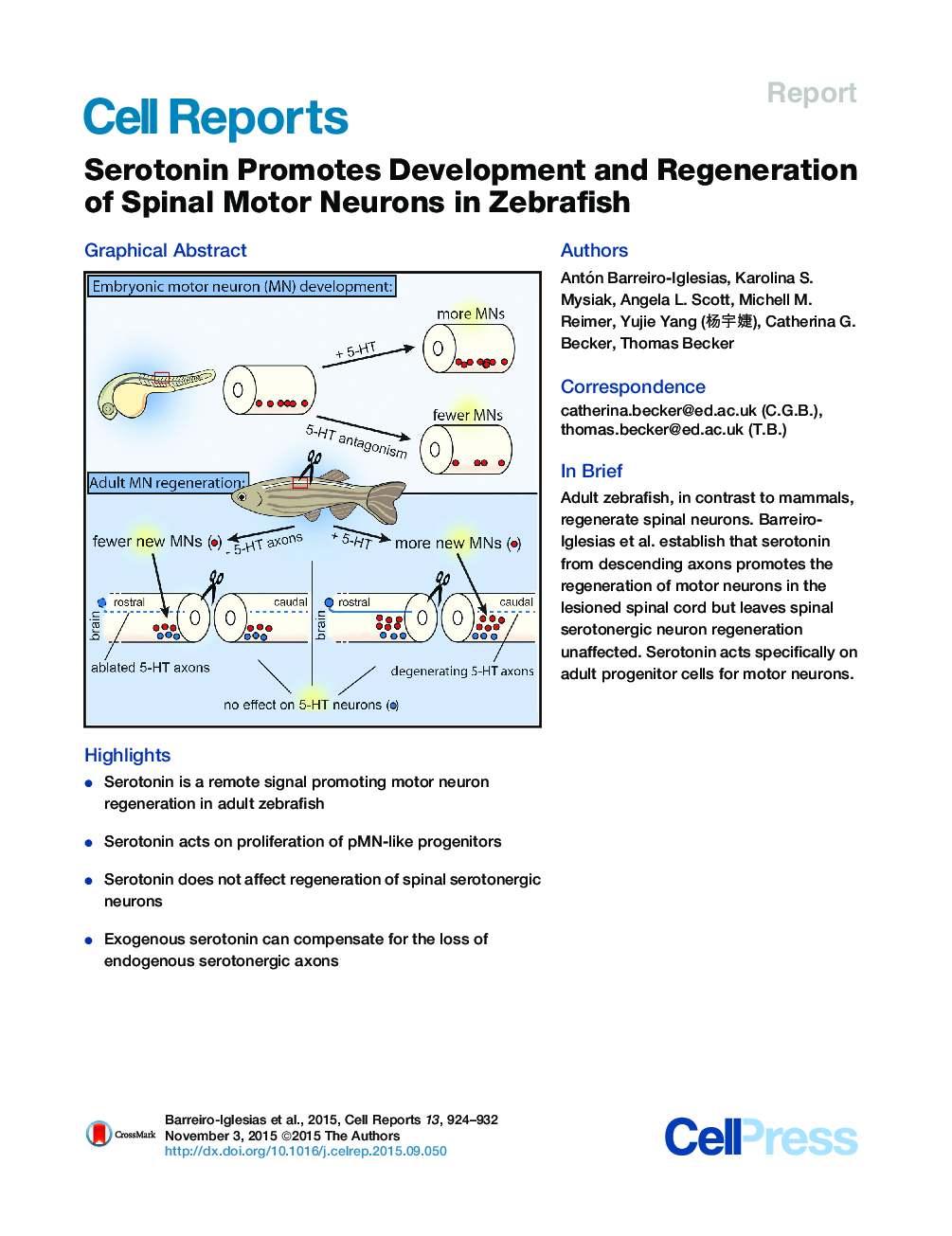| Article ID | Journal | Published Year | Pages | File Type |
|---|---|---|---|---|
| 2040744 | Cell Reports | 2015 | 9 Pages |
•Serotonin is a remote signal promoting motor neuron regeneration in adult zebrafish•Serotonin acts on proliferation of pMN-like progenitors•Serotonin does not affect regeneration of spinal serotonergic neurons•Exogenous serotonin can compensate for the loss of endogenous serotonergic axons
SummaryIn contrast to mammals, zebrafish regenerate spinal motor neurons. During regeneration, developmental signals are re-deployed. Here, we show that, during development, diffuse serotonin promotes spinal motor neuron generation from pMN progenitor cells, leaving interneuron numbers unchanged. Pharmacological manipulations and receptor knockdown indicate that serotonin acts at least in part via 5-HT1A receptors. In adults, serotonin is supplied to the spinal cord mainly (90%) by descending axons from the brain. After a spinal lesion, serotonergic axons degenerate caudal to the lesion but sprout rostral to it. Toxin-mediated ablation of serotonergic axons also rostral to the lesion impaired regeneration of motor neurons only there. Conversely, intraperitoneal serotonin injections doubled numbers of new motor neurons and proliferating pMN-like progenitors caudal to the lesion. Regeneration of spinal-intrinsic serotonergic interneurons was unaltered by these manipulations. Hence, serotonin selectively promotes the development and adult regeneration of motor neurons in zebrafish.
Graphical AbstractFigure optionsDownload full-size imageDownload as PowerPoint slide
